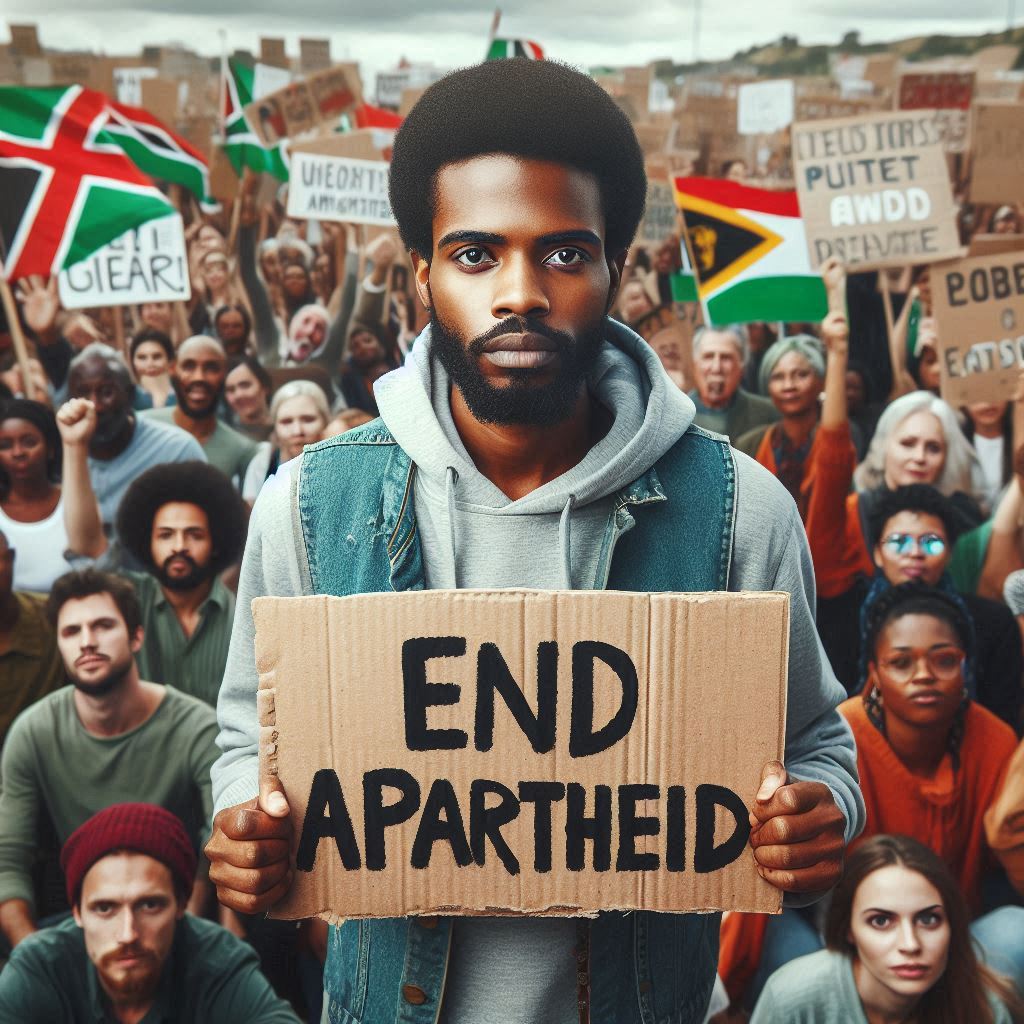Nelson Mandela, a towering figure in the fight against apartheid in South Africa, spent 27 years in prison before his release in 1990. His imprisonment was a pivotal period that galvanized the global anti-apartheid movement and cemented his legacy as a symbol of resistance and reconciliation. This essay explores the reasons behind Mandela’s long imprisonment, the context of his arrest, his life in prison, and the impact of his incarceration on the anti-apartheid struggle and global perceptions of justice and human rights.

Early Life and Political Activism
Nelson Mandela, born in 1918 in the small village of Mvezo, Transkei, became involved in the anti-apartheid movement in the 1940s. As a member of the African National Congress (ANC), Mandela co-founded the ANC Youth League, advocating for direct action against apartheid. The apartheid system, institutionalized by the National Party in 1948, enforced racial segregation and denied basic rights to the majority black population. Mandela’s activism made him a target for the apartheid regime.
Formation of the ANC’s Armed Wing
By the early 1960s, Mandela concluded that peaceful protests were insufficient to dismantle apartheid. In 1961, he co-founded Umkhonto we Sizwe (MK), the armed wing of the ANC, to conduct sabotage campaigns against government installations. The shift to armed struggle marked a significant escalation in the fight against apartheid, highlighting the desperation and determination of activists to achieve equality and justice.
Arrest and Rivonia Trial
Mandela’s militant activities led to his arrest in 1962. Initially charged with incitement to strike and leaving the country without permission, he was sentenced to five years in prison. While serving this sentence, further evidence against him and other ANC leaders was uncovered, leading to the infamous Rivonia Trial in 1963-1964. Mandela and his co-accused faced charges of sabotage and conspiracy to overthrow the government. During the trial, Mandela delivered his famous “I am prepared to die” speech, eloquently articulating his commitment to the anti-apartheid cause and his willingness to sacrifice his life for freedom.
Life Imprisonment Sentence
On June 12, 1964, Mandela and seven others were sentenced to life imprisonment. Mandela was initially incarcerated at Robben Island, a maximum-security prison off the coast of Cape Town. Later, he was transferred to Pollsmoor Prison and then to Victor Verster Prison. Despite the harsh conditions and isolation, Mandela remained a symbol of resistance and hope. His imprisonment drew international attention to the injustices of apartheid and galvanized global support for the anti-apartheid movement.
Global Anti-Apartheid Movement
Mandela’s imprisonment became a rallying point for the global anti-apartheid movement. Activists, governments, and international organizations called for his release and imposed economic and cultural sanctions on South Africa. The “Free Nelson Mandela” campaign became synonymous with the broader struggle against apartheid, illustrating the power of international solidarity in confronting systemic injustice.
Mandela’s Life in Prison
During his 27 years in prison, Mandela’s resolve remained unbroken. He engaged in clandestine communication with other ANC leaders and the outside world, strategizing for the eventual dismantling of apartheid. Despite the deprivations and hardships, Mandela continued to educate himself and his fellow inmates, emphasizing the importance of unity and resilience. His ability to maintain his dignity and principles in the face of adversity inspired both his contemporaries and future generations.
Negotiations and Release
The apartheid regime, facing mounting internal and external pressure, began secret negotiations with Mandela in the late 1980s. These discussions, coupled with widespread civil unrest and international condemnation, led to significant political reforms. On February 11, 1990, Nelson Mandela was released from prison, marking a turning point in South Africa’s history. His release paved the way for the dismantling of apartheid and the establishment of a democratic, multiracial government.
Impact on South Africa and the World
Mandela’s imprisonment and subsequent release had profound implications for South Africa and the global struggle for human rights. His unwavering commitment to reconciliation and peace facilitated the country’s transition from apartheid to democracy. Mandela’s leadership during this period exemplified the power of forgiveness and dialogue in overcoming deep-seated divisions and injustices. His legacy continues to inspire movements for social justice, equality, and human dignity worldwide.
Nelson Mandela’s 27-year imprisonment was a defining period in the fight against apartheid. It underscored the oppressive nature of the apartheid regime and highlighted the resilience and determination of those who opposed it. Mandela’s imprisonment became a symbol of the broader struggle for freedom and justice, galvanizing international support and contributing to the eventual dismantling of apartheid. His release and subsequent leadership exemplified the transformative power of resilience, forgiveness, and unwavering commitment to human rights. Mandela’s legacy endures as a beacon of hope and a testament to the enduring quest for equality and justice.

